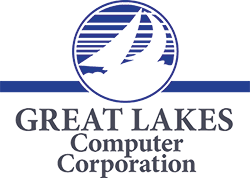 You know what the most amazing part about Heartbleed is? It was around for two years before any news came out about.
You know what the most amazing part about Heartbleed is? It was around for two years before any news came out about.
And it also affected about 2/3 of all internet servers. Doesn’t it seem amazing something like this could happen in the internet of 2014? It just goes to show you anything can happen in the technological world.
Besides Heartbleed, let’s take a look at some of the most destructive viruses in the history of the internet and see how you can protect yourself from having something like them attack you in the future:
-
- Cryptolocker (2013): This virus is one of those in a newer category called “ransomware.” These viruses literally seize control of your PC, and force you to pay a ransom to get the use of it back. If you don’t do it within the specified time period, you permanently lose access to all data on the affected PC. Researchers believe it’s literally impossible to remove the Cryptolocker virus by any means other than paying the ransom once you are affected.
- Stuxnet (2009): This was the first virus actually intended to cause damage in the real world. It attacked software that controlled industrial systems. It was designed to wreak havoc in Iran’s uranium enrichment program. It successfully caused some centrifuges to spin out of control.
- Conficker Virus (2009): This virus infected millions of computers, causing the criminals to be able to steal private information, including financial data. It was so sophisticated that it was difficult to stop once in place.
- Agent.btz (2008): A lot of good actually came out of this one. The good that happened was the US Cyber Command was created to stop cybercrime threats. The bad in this whole situation was it allowed the creator of the virus to transfer information to computers under someone else’s control. It’s unclear whether or not this was done by foreign cyber criminals, but that is the prevailing belief.
- Zeus (2007): Though it didn’t attack on the scale of other viruses, Zeus nonetheless was very damaging. It was the basic tool cyber criminals used to steal passwords and other confidential information.
How to Strengthen your Data Protection
To protect yourself from these viruses, or any others, you have to pay attention to the same old basics of internet safety:
-
- Use antivirus/antimalware software at all times.
- Never open an e-mail attachment or click on a link from an e-mail address you don’t recognize.
- If you get a strange e-mail message from someone you know, don’t click the link or the attachment. Assume the account has been hacked and the e-mail sent to you without permission from the real owner of the account.
- Never visit websites you don’t trust.
- Use a firewall.
- Keep your PC and servers fully updated.
Cyber criminals move fast. It’s tough to keep up, even if you are an IT pro. If you can’t take care of all of this, you can always hire a managed network services provider to take care of your data security and protection for you. Couple that with a remote monitoring tool to trigger alerts on hardware failures and volunerabilities, and you won’t have to worry about being a victim.
Learn more about the author Bob Martin




